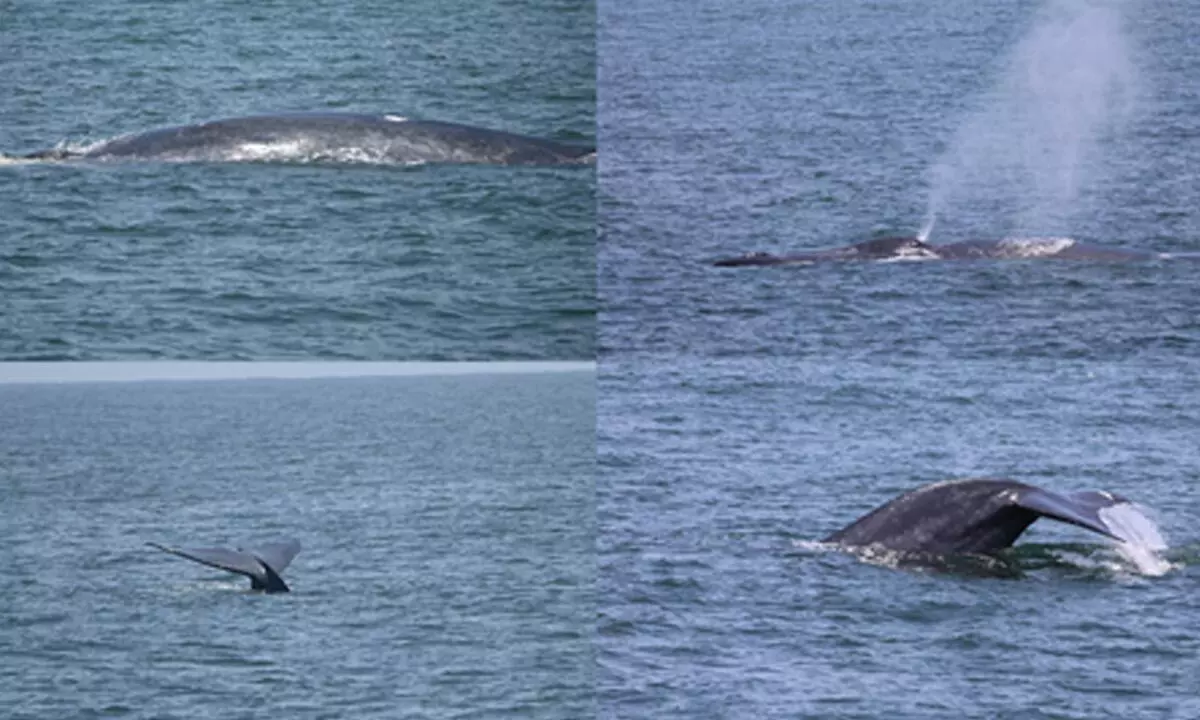CMFRI embarks on 100-day coastal survey on marine mammals
Share :

Amid frequent whale stranding events, a research response team from the ICAR-Central Marine Fisheries Research Institute (CMFRI) embarked on a 100-day coastal survey to better understand the diversity and distribution of marine mammals on the Indian coast.
Kochi: Amid frequent whale stranding events, a research response team from the ICAR-Central Marine Fisheries Research Institute (CMFRI) embarked on a 100-day coastal survey to better understand the diversity and distribution of marine mammals on the Indian coast.
The survey is in continuation of a joint research project with the Fishery Survey of India under the Ministry of Fisheries, aimed at assessing marine mammal stock and population in Indian waters.
The researchers, who began the survey from Kochi, will study the marine mammal diversity on the Indian coast within 12 nautical miles and analyse the relation between stranding events and changing climatic conditions.
They will also engage in habitat modeling and recording of stranding events, considering the potential impacts of climatic and oceanographic conditions on the biological dynamics of marine mammals.
This collaborative project also aims to achieve a holistic understanding of marine mammal behaviour, population dynamics and ecology, setting the stage for effective conservation measures in India.
Marine scientists believe that climate change and ensuing impacts on ocean ecosystems might be one of the reasons for increased events of whale stranding.
Recently, the carcass of a 50-ft blue whale had been washed ashore in Kozhikode district.
R Ratheesh Kumar, Principal Investigator of the project, said the increased frequency of cyclones and storm surges could potentially lead to such standings, hence there is a critical need to study the impact of these extreme climatic events on behaviour and distribution patterns of marine mammals.
“These species are highly sensitive to both biotic and abiotic environmental factors, including habitat changes, shifts in distribution, alteration in migration routes, and climatic conditions such as rising ocean temperatures, changing cyclonic patterns, and storm surges. The CMFRI team will closely monitor such occurrences at sea and collect crucial data on these for further analysis”, said Kumar.
The institute initiated the marine mammal assessment project in 2021, during which 16 marine mammal species were recorded through on-board visual surveys within the Indian Exclusive Economic Zone (EEZ), including different species of whales and dolphins. After a temporary hiatus, the project was resumed in 2023.
The survey employs the line transect methodology, primarily involving the sighting and species-level counting of animals. During the sighting survey, specific areas are systematically sampled for marine mammals, ensuring representative coverage of the entire region.
These surveys are carried out by well-trained observers who scan the sea with binoculars and alternating with the naked eye.
